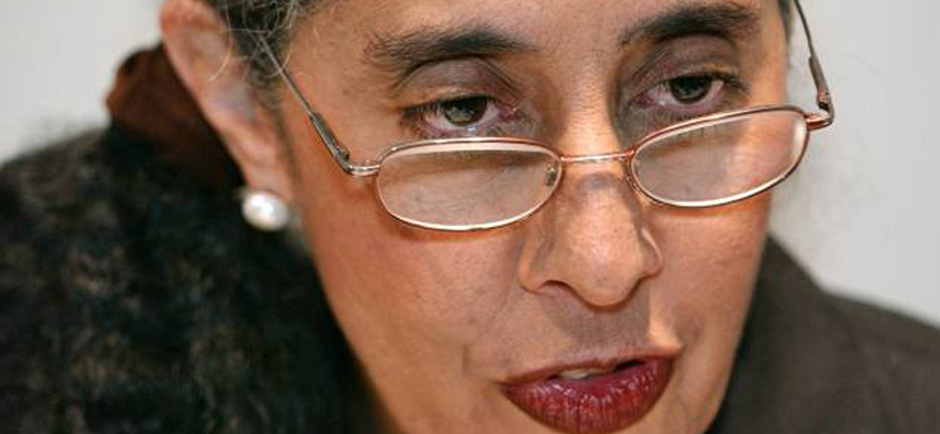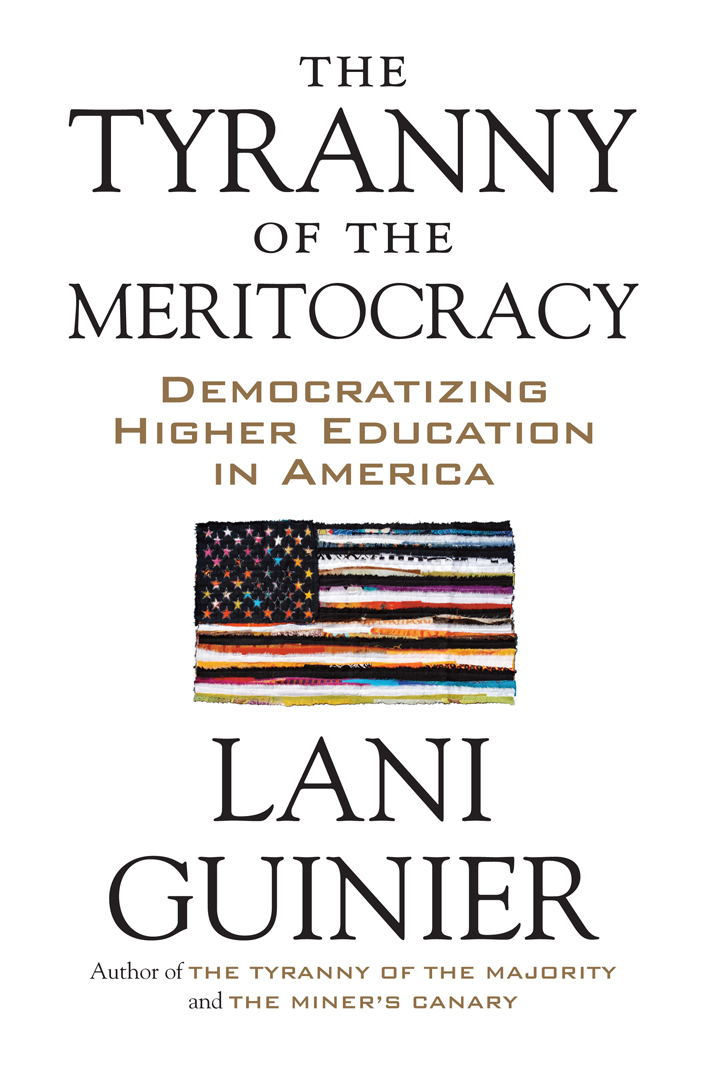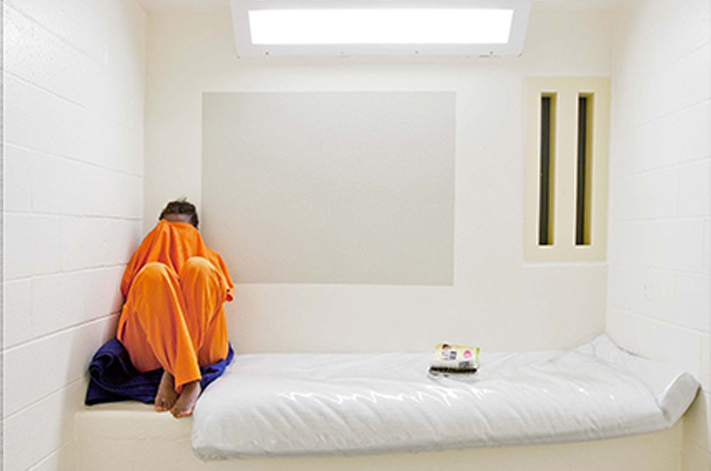Project Description
Salon Exclusive; The civil rights authority tells Salon why teaching to the test hurts kids -- and favors the elite.
Lani Guinier on our Ivy League Meritocracy Lie: 'You don’t want only those people who do well on the SAT.'
If you were a fan of the HBO series “The Wire,” you likely remember the scene in the fourth season focused on Baltimore public schools where the term “juking the stats” defined how corporate-driven reengineering of the public sphere has distorted public institutions so they no longer serve ordinary people.
The scene that really crystalized how these systems are transmogrifying our public institutions occurred in an episode in which disgraced police officer Roland “Prezbo” Pryzbylewski, who is now employed as a Baltimore public school teacher, learns how his school will teach test questions in order to increase student scores on standardized exams. “Juking the stats,” he confides to a fellow teacher, “Making robberies into larcenies. Making rapes disappear. You juke the stats, and majors become colonels. I’ve been here before.”
It’s good for us to remind ourselves about this scene as Congress deliberates on rewriting No Child Left Behind legislation that made juking the stats an imperative in public education. Senators and House members are pouring over the law and questioning the use of testing and how student scores on those tests are being used to evaluate teachers and schools.
But the harm inflicted by the tyranny of metrics extends way beyond juking the stats in our public schools. The over-emphasis on test scores and other quantifiable outcomes – often at the exclusion of other kinds of data – distorts just about every aspect of American society.
That, in part, is the view of “The Tyranny of the Meritocracy: Democratizing Higher Education in America,” a new book by Harvard law professor and civil rights authority Lani Guinier.
You remember Lani Guinier. In the early days of the Bill Clinton presidential administration, she became a lightning rod for wingnut conservatives when news broke that Clinton would nominate her to be the first black woman to head the Civil Rights Division of the Department of Justice. As a daughter of one of only two blacks admitted to Harvard College in 1929, a Yale Law graduate and civil rights lawyer, and a special assistant to the assistant attorney general in the Civil Rights Division during the Jimmy Carter administration, her nomination made sense, right?
Not if you were a Republican back in 1993. Her views and legal writings about proportional representation in our electoral system were distorted by conservatives, who labeled her a “quota queen,” and were misunderstood by journalists, including editors of the New York Times who were unable to cut through the fog of right-wing propaganda.
As Richard Kahlenberg of the Century Foundation recalls in his review of Guinier’s book that ran in The Nation, even her pal Clinton “unjustly” mischaracterized her views and withdrew her nomination. Such is the sturdy stuff Democratic Party leaders are made of. (Has anything changed?)
Well, Guinier has moved on since then to become the first woman of color appointed to a tenured professorship at Harvard Law School and author of a string of books. In “The Tyranny of the Meritocracy,” she once again takes on a component of right-wing authoritarianism that people on the left often wither from criticizing or even support outright. As Kahlenberg writes in his review, Guinier argues for a radically different view of how merit is awarded in American society starting with the college admission process.
Guinier does not confine her argument to higher education, but merely uses the college admission process as a launching pad to critical examinations of K-12 education policy and the greater public arena.
“We need a culture shift,” she writes, “about how we reevaluate the meaning of merit by measuring its democratic values rather than its testocratic machinery. Democratic merit makes different assumptions than testocratic merit.”
Salon caught up with Guinier in the middle of a Boston snowstorm where she explained her book’s intentions and limitations.
You seem to have picked a topic that is very timely as your book comes out when the issue of meritocracy and the country’s growing inequality – both economically and educationally – is getting lots of attention at the same time that there are all sorts of new measures being considered for assessing the performance of our education system – both higher education and K-12. Were those reasons that compelled you to write this book now or were there others?
You’ve hit right on it. There is a lot of inequality in terms of access to higher education and how the process of gaining access, as it is focused on a particular spectrum of citizens, measures merit. We are convinced that the people who do better on an SAT test are somehow going to be better leaders than people who know how to collaborate and work together to solve difficult problems.
I love the new term you’ve coined – “testocracy” – which you describe as “a 21st century cult of standardized, quantifiable merit that values perfect test scores but ignores character.” It really is very descriptive of, as you call it, the cult of quantification, where test scores become practically the only target we’re focusing on, and how the scores are being used as a measurement for the worth of all kinds of pursuits, many of which don’t match up to what a test score is actually assessing.
And as you explain, our education system has narrowed the definition of merit to individual achievement and completion for test scores, and the problem with that is those narrowed visions for education extend to problems in our greater society where elevating those values causes us to undervalue other qualities like collaboration, teamwork, collective well-being – things that are important to democracy. I wonder, though, if you may be giving education too much credit here as having that kind of influence, or is it more a matter of value systems from other sectors in the economy warping education?
I don’t claim to be an expert on all of education in the United States. So that is a big question. But I’ll give you a little answer. I think you hit the point pretty gracefully when you said this is about our failure to value and to take advantage of the powers of collaboration to solve difficult problems. When I say the powers of collaboration I mean the value of a collaborative instrument or a collaborative community, where people who have very different strengths, work together to solve difficult problems. What we have in the testocracy and the meritocracy in the 21st century is much more about competitive individualism and identifying people who are, in a particular domain, smarter than other people without determining – or even having substantial evidence – that these are the people who are going to exemplify or provide access to a better democracy, a better country and a better public.
You also talk about how the testocracy has produced a very specific kind of leader, that we see in government, politics and administration, in a way that prohibits a more diverse group of people to take on leadership positions.
I think we undervalue collaboration, and we have a society that has been brought up under the umbrella of a meritocracy, in which opportunity is seen very much as a location for individual aspiration. Our appreciation of merit – using Amartya Sen’s definition of merit as an incentive system that rewards actions society values – in our society, at least in the 21st century, is committed to competitive individualism rather than to collaborative problem solving. Certainly there is some value to competition in particular contexts, but that shouldn’t be the dominant context, or the dominant measure.
You focus most of your criticisms on higher education and the college admission process. You’re particularly critical of the SAT. You say scores on those exams are “accurate reflections of wealth and little else.” As you probably know, the SAT is currently undergoing a revision by the College Board. Have you read anything about that revision that gives you hope the new version of the exam will be any better?
I haven’t seen the new version so it’s hard for me to answer. But I am skeptical of our current view of what the testocracy is about. In our current view of the testocracy – whether it’s using paper and pencil to determine your smartness or whether it’s using computers – it’s determining a very narrow element of your “smartness,” which is that maybe you’re really good at taking the test but that doesn’t mean you’re really good at solving real problems that need to be addressed. So it’s a mismatch.
So when people counter criticism of the testocracy by saying, “Oh, we can make the tests better. We can make them so they’ll test other things, so they have a broader vision of intellectual capacities,” I take it that you’re skeptical of those claims.
Depending on what the goal is. I mean, I’m a law professor and in many of my courses, I give people tests. But during the school term, I also give writing assignments and require that students work together to facilitate classroom discussion. I’m not opposed to asking for their feedback and I always try to identify the extent to which students have understood the lesson and have been able to apply it. My point is, what is the ultimate goal of higher education? There is an Education School professor at Stanford, David Labaree, who has talked about and written about the different goals that education can have. It’s about what is the mission of higher education – what is it that we want college or law school graduates to be capable of doing? And whether you do well on the SAT or the LSAT or not, is not a definition or a prediction of how well you’re going to do to solve real problems that are affecting not only the United States but the rest of the world.
Another aspect of higher ed that you’re very critical of is colleges that emphasize “compiling an individualistic group of very high scoring students” instead of “nurturing diverse thinkers.” As you also probably know, the Obama administration is currently conceiving a college rating system that will likely be very metric driven – in terms of test scores, graduation rates, post-graduate success, success in getting higher-paying employment, and other factors. Also, many higher education systems are seriously considering imposing standardized tests, including graduation exams and annual tests to measure student growth in test scores. Aren’t these measures going to make matters worse?”
Yes. I agree with you.
So if we have an assessment system that is barreling down the wrong road, what can we do to say, “Stop. Look in this other direction instead.”
That’s the reason I wrote the book. I think what President Obama and others are trying to do is certainly understandable and certainly made with the best of their ideas and commitment, but to solve complex problems you don’t just want only those people who do well on the SAT or who do really well on the LSAT. Twenty-plus years ago when I was teaching at the University of Pennsylvania Law School, I was given access to data by the then new dean for four years of student performance. I got their LSAT scores, their undergraduate GPA, and their law school grades. It turned out that the LSAT was a very weak predictor of the students’ success in law school. The LSAT predicted 14 percent of the variance in the first year of law school, and 15 percent in the second year, which means that 85 percent of the time the LSAT was not predictive. So my point is that we should be nurturing a diverse group of problem solvers rather than measuring a much less diverse group of test takers.
Let’s pivot to K-12 education. Part of your book is devoted to highlighting a few K-12 schools that are innovating, in your view, with instructional and curricular approaches that emphasize complex problem solving and cooperative learning. The practices these schools engage in don’t align very well with the new emphasis on standardized testing in K-12 and tying student scores on tests to high-stakes decisions about teacher evaluation and school closure. Do you worry that an emphasis on tests in K-12 will impose a “teach to the test” mentality that will force out innovative practices you’d prefer?
That’s the problem. What many K-12 teachers, principals and educational leaders worry about is preparing a group of students to go to college as college eligibility is presently determined. The goal in my view should be not teaching to the test but teaching how to collaborate with others, and when I say collaborate with others I don’t mean you have to be assigned to some arbitrary person, and then the two of you are measured for your capacity to solve a problem. I’m suggesting that as a new understanding of what merit means, it’s not just an individual content. It’s also the capacity to work with other people to solve real problems that affect large numbers of us.
OK, here comes the hard part of the interview. One of the K-12 schools you highlight is the KIPP charter chain. You cite KIPP as a school that has exemplary test scores based on the student populations that they serve. Isn’t that just another example of the testocracy in action, where a type of school can become rationalized, regardless of what kind of pedagogy it practices, simply because it has gotten high test scores with a group of students that a lot of schools struggle with?
That’s a complex question that moves in a direction that is not my specialty and not something that I’ve studied. I think it’s important to allow, enable and encourage experimental ways of educating people. You want to encourage young people to see the power in learning and that learning is not only something that is often difficult but that it also can give you confidence once you’ve mastered it. I want to encourage people to consider the power of working together to problem-solve and to build on people’s differing strengths so you’re taking advantage of the wealth in the environment and in student time and energy and how all of that can be brought together in very important ways. What we have instead is pitting people against each other, and the school, the teacher, the city officials, whoever is trying to measure educational advancement, are too focused on paper and pencil tests. I’m not taking on the testocracy, per se, I’m just trying to look at an alternative way to look at merit.
The tyranny of the testocracy is not lost on people in the street. Around the country, we’re seeing a growing resentment among parents that testing has become too important in their schools and that their children are being labeled by their scores on a test. So we see parents are organizing to opt their children out of tests, and saying, “Our kids aren’t going to take the test.” We’re also seeing in state legislatures and local school boards a growing distaste for the enormous costs and difficulties of imposing the tests and using the tests to make judgments about teachers and schools. Are those encouraging signs, and do you see other encouraging signs?
I don’t know enough about what is happening with parents and officials at that level. But I think it is very important that people at least are questioning the status quo and questioning the competitive impulse to measure merit based on test scores alone, when the test scores are created by others whose metric is too often associated with wealth and not often enough associated with democracy.
Jeff Bryant is Director of the Education Opportunity Network, a partnership effort of the Institute for America’s Future and the Opportunity to Learn Campaign. Jeff owns a marketing and communications consultancy in Chapel Hill, N.C., and has written extensively about public education policy.
This piece was republished by EmpathyEducates with the kind permission of the Author, Jeff Bryant. We wish to express the depth of our appreciation for the Salon interview, the compelling questions, the sage answers — and for Lani Guinier who, throughout her career has worked to ensure that education is an inalienable Human Right!












